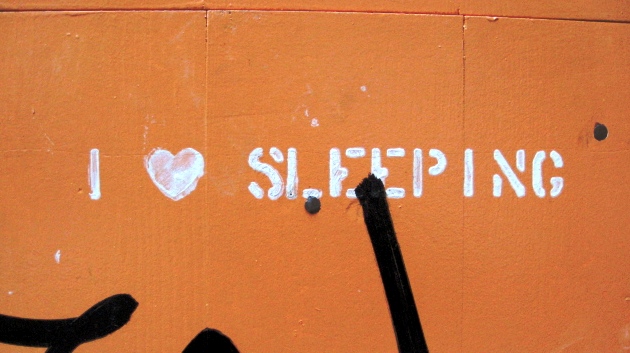“A good laugh and a long sleep are the best cures in the doctor’s book.”
-Irish Proverb
I’m always surprised by how many people confess to sleep troubles when they hear I’m a health coach. If you feel that you’re the only one awake at 2 in the morning, I can assure you that you are not. You are pinpoint of restlessness in a galaxy of sleeplessness. Some of the other pinpoints are catching up on social media, some are reading, but a whole lot of them are worrying.
We’ve all heard the standard advice for what’s known as sleep hygiene. Go to bed early (really?), turn off all electronics by 8 (as if), avoid coffee and alcohol for six hours before bed (hunh?) The name alone is a bit of a horror. It’s not often that we talk about “hygiene” unless there’s some unpleasant, odorous reason to.
I always find it useful to understand “why” before I commit to making a change – what the science is behind the suggestions. I want to filter out the “in a perfect world” advice and get right to the “least effort possible” stuff. I like curling up with my iPad and a glass of wine to wind down and there better be a damn good reason why I would give that up.
How Does Sleep Work?
Sleep has it’s own rhythm throughout the night. There are five stages that cycle together in different combinations.
- Stage 1 of sleep is short and sweet – your muscle activity and eye movements slow down.
- Within 5 – 10 minutes you reach Stage 2, where body temperature drops, heart rate slows and your body prepares for deep sleep. Stage 2 is a gateway in and out of deeper stages of sleep. You spend about half of your sleep time in this stage.
- During stages 3 and 4 your body uses available human growth hormone to repair and do growth work.
- Stage 5 is the dream stage. Your body paralyzes your arm and leg muscles and then sorts through thoughts, memories, and knowledge and files them away.
A healthy person sleeping in a healthy location passes through five or six complete cycles lasting up to 90 minutes each. The earlier phases are deeper and longer. Your body uses these cycles to dispatch the hormones that restore and repair your cells. As the night progresses the cycles shorten and you start to dream more as your brain processes the mental activity of the day. This is when you get smarter.
The Rhythm of Sleep
There are two hormones – cortisol and melatonin – that work together in a rhythm to set the stage for sleep. In that imaginary perfect world, the times when one hormone is high, the other is low. Their levels cross over twice – at night to send you to bed and again in the morning to push you out. Cortisol, the action/stress hormone, peaks in the morning when melatonin has almost disappeared. This tells your brain to jump out of bed and get your day started. At the other end of the day, melatonin, the sleep hormone, rises as cortisol drops. When melatonin is higher in your system than cortisol your bed starts looking very appealing.
So what happens when this beautiful rhythm is interrupted by this thing we call “normal living”? The first step in approaching a problem is to understand what the problem is. You can try this quiz to see how your sleep might be disrupted. So many of us live with “disordered” sleep that we’ve forgotten what a good night’s sleep is like. This quiz will help you be clear on the different messages your sleep is sending you.
In a follow-up post I’ll cover a few scenarios of unsatisfying sleep and what they might mean. There’s a whole lot of information coded into when you fall asleep and when you wake up. The first step is to be mindful of where the problem lies.
Sweet dreams!
Image: I Love Sleeping by bixentro. Licensed under Creative Commons
If you enjoyed this post, please share it with your friends!

